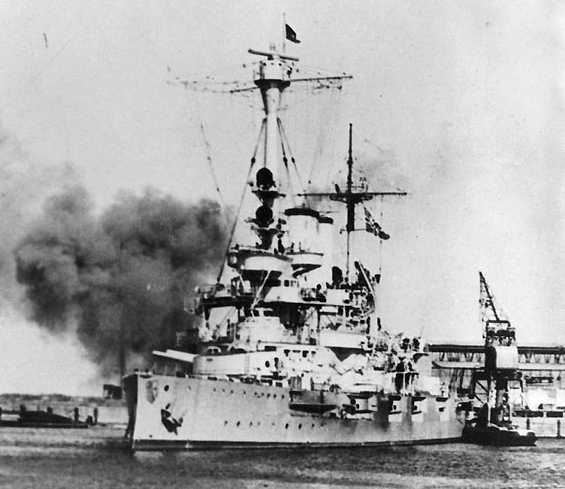
March 26
1875 Birth: Max Abraham: German physicist. Abraham was born in Danzig, Germany (now Gdansk in Poland) to a family of Jewish merchants. Attending the University of Berlin, he studied under Max Planck. Abraham developed his theory of the electron in 1902, in which he hypothesized that the electron was a perfect sphere with a charge divided evenly around its surface. Hendrik Lorentz (1899, 1904) and Albert Einstein (1905) developed a different theory which became more widely accepted; nevertheless, Abraham never gave up believing that his views were correct, since in his eyes they were based on "common sense".
1893 Birth: James B. Conant: James Bryant Conant was an American educator and scientist. After earning his PhD at Harvard (1916), Conant spent a year in the research division of the chemical warfare service during World War I, then returned to Harvard as a chemistry instructor. In research, he made important findings on the chemistry of chlorophyll and hemoglobin. In 1933, Conant became president of Harvard University. An early advocate of aid to the Allies, Conant became a central figure in organizing American science for World War II, including the development of the atomic bomb. Following WW II, he became a diplomat, as US high commissioner for western Germany (1953). From 1957, he was an education reformer.
1908 Birth: Franz Paul Stangl—commandant of the Sobibor and Treblinka extermination camps—in Altmuenster, Austria. [For further details, Click here.]
1913 Balkan War: Bulgarian forces take Adrianople.
1916 World War I: Gefreiter Adolf Hitler endures trench warfare in Flanders (Artois) with 3 Company, 16 Reserve Infantry Regiment [List Regiment]. [For further details, Click here.] 1917 World War I: First Battle of Gaza: The first of three battles fought in the Allied attempt to defeat Turkish forces in and around the city of Gaza takes place on this day in 1917.[For further details, Click here.]
1918 World War I: French Marshal Ferdinand Foch is appointed commander of the Allied armies on the Western Front.
1925 Voelkishness: Count Hochberg gives 500 gold marks to the Order of the New Templars (ONT) for the purchase of the small ancient earthwork of Wickeloh near Gross-Oesingen in Lower Saxony. (THP)
1937 Divini Redemptoris: an encyclical is published, condemning atheistic Communism.
1938 Holocaust: Various:
Jewish professors and instructors are dismissed from Austrian universities.
From a speech by Hermann Goering in Vienna:
I must address myself with a serious word to the city of Vienna. The city of Vienna can no longer rightfully be called a German city. So many Jews live in this city. Where there are 300,000 Jews, you cannot speak of a German city. Vienna must once more become a German city, because it must perform important tasks for Germany in Germany's Ostmark. These tasks lie in the sphere of culture as well as in the sphere of economics. In neither of them can we, in the long run, put up with the Jew. This, however, should not be attempted by inappropriate interference and stupid measures but must be done systematically and carefully. As Delegate for the Four Year Plan, I commission the Reichsstatthalter in Austria jointly with the Plenipotentiary of the Reich to consider and take any steps necessary for the redirection of Jewish commerce, i.e., for the Aryanization of business and economic life, and to execute this process in accordance with our laws, legally but inexorably.
1939 Polish Ambassador Lipski in Berlin completely rejects Germany's proposals of October 1938. Beck refuses to even meet with Hitler, and instructs Lipski to tell Ribbentrop that if Germany continues to insist on the idea of a German Danzig . . . it would mean war. (THP)
1941 Various: Matsuoka visits Berlin and is received by Hitler. [See: Did Hitler Have Foreknowledge of Pearl Harbor?]
World War II: Yugoslavia: A military coup d'etat against the pro-German policies of Prince-Regent Paul begins. General Dusan Simovic becomes prime minister under King Peter II.
Holocaust: Einsatzgruppen: Reinhard Heydrich and Wehrmacht Quartermaster General Eduard Wagner have produced a draft plan outlining a partnership between the Wehrmacht and the SS, setting up the operational procedure for what are called Einsatzgruppen (special task forces). The Einsatzgruppen are to take their orders from the SS, but otherwise, they are subject to military command. The army is to control their movements and furnish them with quarters, rations, gasoline and communications assistance. These small mobile groups are charged with ridding freshly acquired eastern territories of their "undesirable" civilian elements, and will be required to operate virtually on the front lines. (THP) [See: Was the German Military Complicit in the Holocaust?]
Holocaust: A scientific meeting takes place to mark the inauguration of the Institute for the Investigation of the Jewish Question in Frankfurt am Main. Professor Fischer and Professor Guenther are guests of honor. Dr. Gross, head of the Race-policy Bureau of the Nazi Party says: "The definitive solution must comprise the removal of the Jews from Europe," and he demands sterilization of quarter-Jews: "The reproduction of the quarter-Jews left behind in European countries must be reduced to a minimum." Professor von Verschuer reports the meeting for his journal, Der Erbarzt (The Heredity-Physician). (THP)
World War II: Naval warfare gets new weapon: Italy attacks the British fleet at Suda Bay, Crete, using detachable warheads to sink a British cruiser. This was the first time manned torpedoes had been employed in naval warfare, adding a new weapon to the world's navies' arsenals.
The manned torpedo, also known as the "Chariot," was unique. Primarily used to attack enemy ships still in harbor, the Chariots needed "pilots" to "drive" them to their targets. Sitting astride the torpedo on a vehicle that would transport them both, the pilot would guide the missile as close to the target as possible, then ride the vehicle back, usually to a submarine. The Chariot was an enormous advantage; before its development, the closest weapon to the Chariot was the Japanese Kaiten: a human torpedo, or suicide bomb, which had obvious drawbacks.
The first successful use of the Chariot was by the Italian navy, although they referred to their version as Maiali, or "Pigs." On March 26, six Italian motorboats, commanded by Italian naval commander Lt. Luigi Faggioni, entered Suda Bay in Crete and planted their Maiali along a British convoy in harbor there. The cruiser York was so severely damaged by the blast that it had to be beached.
The manned torpedo proved to be the most effective weapon in the Italian naval arsenal, used successfully against the British again in December 1941 at Alexandria, Egypt. Italian torpedoes sank the British battleships Queen Elizabeth and Valiant, as well as one tanker. They were also used against merchant ships at Gibraltar and elsewhere.
The British avenged themselves against the Italians, though, by sinking the new Italian cruiser Ulpio Traiano in the port of Palermo, Sicily, in early January 1943. An 8,500-ton ocean liner was also damaged in the same attack.
After the Italian surrender, Britain, and later Germany, continued to use the manned torpedo. In fact, Germany succeeded in sinking two British minesweepers off Normandy Beach in July 1944, using their Neger torpedoes. (History.com)
1942 Various: Holocaust: The first deportations of Jews to Auschwitz begins: The first group is from Bratislava in Slovakia. Once at Auschwitz, all are sent to the barracks. No gassing takes place until May 4, 1942. (THP)
Holocaust: Germany: All Jewish dwellings in must now be marked by a Star of David. (THP)
1943 World War II: Battle of the Komandorski Islands: In the Aleutian Islands the battle begins when United States Navy forces intercept Japanese attempting to reinforce a garrison at Kiska. [See: Battle of the Aleutians.]
1945 World War II: Various: War in the Pacific: Hitler: concerned about the fate of the SS regiments surrounded by the Red Army, had ordered a breakthrough rescue mission. The attempt, launched this day, fails to provide any relief to the doomed soldiers. (Clark) [See: The Last Days of the Third Reich.]
1946 Nuremberg Tribunal: Testimony of Foreign Office State Secretary Adolf von Steengracht:
The foreign policy, not only on its basic lines, but also usually down to the most minute details, was determined by Hitler himself. Ribbentrop frequently stated that the Fuehrer needed no Foreign Minister, he simply wanted a foreign political secretary. Ribbentrop, in my opinion, would have been satisfied with such a position because then at least, backed by Hitler's authority, he could have eliminated partly the destructive and indirect foreign political influences and their sway on Hitler. Perhaps he might then have had a chance of influencing Hitler's speeches, which the latter was accustomed to formulate without Ribbentrop, even in the foreign political field. [For the full text of today's proceedings, Click here.] I had a long talk with Bill Jackson tonight about the case. I told him that unless we moved it along we would never finish it. The Justice is ill in bed and will not be back for a few days. I think he is worn out from his experience with Goering—he has been on the bench too long to take the cross-examination work. 1947 Wunderwaffen: Werner von Braun: Hitler's former chief rocket scientist who is now working for the US, returns to Fort Bliss with his parents and his new wife. Since his brother Magnus is already at Fort Bliss, the von Brauns are almost all now reunited as immigrants in America. Only his brother Sigismund, a former diplomatic officer to the Vatican, remains in Germany, employed as a translator for the International Military Tribunal at Nuremberg. (Piszkiewicz) [See: Wunderwaffen: Hitler's Deception and the History of Rocketry.] 1950 McCarthy charges that Owen Lattimore is a Soviet spy: During a radio broadcast dealing with a Senate investigation into communists in the U.S. Department of State, news is leaked that Senator Joseph McCarthy has charged Professor Owen Lattimore with being a top spy for the Soviet Union. Lattimore soon became a central figure in the Red Scare hysteria created by McCarthy's reckless charges and accusations.
McCarthy had achieved instant fame in February 1950 when he stated in a speech that he had a list of over 200 "known communists" in the Department of State. When pressed for details, however, McCarthy was evasive. When the Senate demanded that he produce evidence to support his claim, McCarthy gave a rambling and nearly incoherent presentation. Nevertheless, the senator from Wisconsin maintained his claim and insisted that he had definitive evidence on at least one person who had worked for the State Department; it soon became clear that Lattimore was that person.
Lattimore was a scholar of Chinese history who taught at Johns Hopkins University. During World War II, President Franklin D. Roosevelt appointed him as a special representative to the Nationalist Chinese government of Chiang Kai-Shek. Lattimore also served in the Office of War Information. His troubles began after the war, when it became apparent that Chiang's government would fall to the communist forces of Mao Zedong. When China fell to the communists in 1949, shocked Americans looked for scapegoats to blame for the debacle. Individuals such as Lattimore, who had been unremitting in their criticism of Chiang's regime, were easy targets.
In March 1950, Senator McCarthy was being pressed hard to produce the "known communists" he had spoken of in his February speech. He turned his attention to those in the Department of State who had been involved in Chinese affairs, and Lattimore's name naturally arose. Soon, McCarthy was charging that Lattimore was the top Soviet spy in the United States. Lattimore angrily denied it and hearings before a congressional committee cleared him of all charges. McCarthy did not give up, however. In 1951-1952, the Senate Internal Security Subcommittee revisited the accusations against Lattimore. During his testimony, the scholar admitted that his 1950 testimony contained some minor inaccuracies. This was enough for the Subcommittee to charge Lattimore with perjury. These charges were also eventually dropped for lack of evidence, but Lattimore's career had already been severely damaged. In 1963, he left the United States to teach and write in Great Britain. He returned some years later and died in 1989. He was just one of the many victims of McCarthy's reckless witch-hunts—as with all of McCarthy's "communists," no evidence ever surfaced to support his charges against Lattimore. (History.com)
1957 Concordat: The West German Constitutional Court upholds the continued validity of the Vatican Concordat for the German Federal Republic.
Edited by Levi Bookin (Copy editor) Click to join 3rdReichStudies
FAIR USE NOTICE: This site may contain copyrighted material the use of which has not always been specifically authorized by the copyright owner. We are making such material available in our efforts to advance understanding of historical, political, human rights, economic, democracy, scientific, environmental, and social justice issues, etc. We believe this constitutes a 'fair use' of any such copyrighted material as provided for in section 107 of the US Copyright Law. In accordance with Title 17 U.S.C. Section 107, the material on this site is distributed without profit to those who have expressed a prior interest in receiving the included information for research and educational purposes. If you wish to use copyrighted material from this site for purposes of your own that go beyond 'fair use', you must obtain permission from the copyright owner.
Please note that the list-owner and the moderator are not responsible for, and do not necessarily approve of, the random ads placed on our pages by our web server. They are, unfortunately, the price one pays for a 'free' website.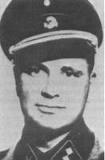

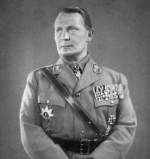
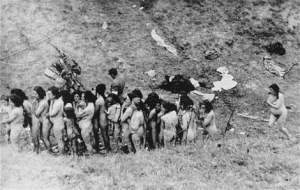
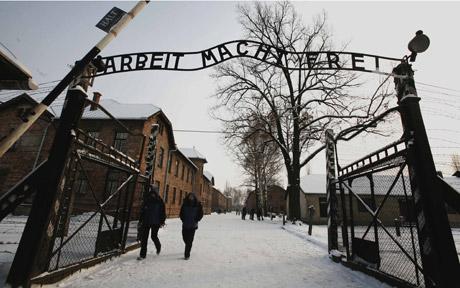


levi.bookin@gmail.com






